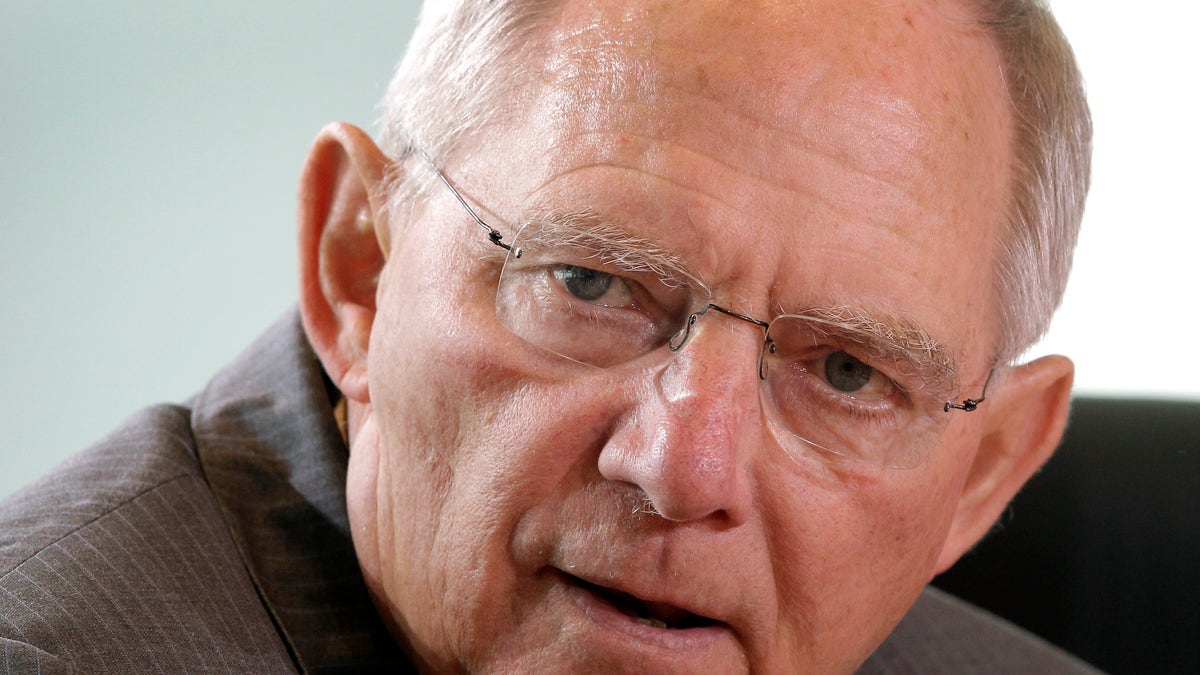
German Finance Minister Wolfgang Schaeuble attends the weekly cabinet meeting at the chancellery, in Berlin, Germany, Wednesday, May 22, 2013. (AP Photo/Michael Sohn) (The Associated Press)
BERLIN – Germany and France are preparing to launch a drive to combat the problem of high European youth unemployment, which officials in Berlin say will center on trying to get business involved and make better use of already-pledged public money.
Germany's labor minister, Ursula von der Leyen, said Wednesday that she and her French counterpart will meet in Paris next week along with the countries' finance ministers and European industry representatives to discuss the initiative. On July 3, Chancellor Angela Merkel plans to host a meeting of the 27 European Union nations' labor ministers and national labor agency heads in Berlin.
High youth unemployment has become a pressing problem in many European countries as the effects of government belt-tightening are felt. The jobless rate among under-25s in the 17-nation eurozone was 24 percent in March, compared with the overall rate of 12.1 percent; in Greece, nearly 60 percent of young people were out of work.
Many details of what the German-French initiative will produce remain unclear. It comes at a time when both governments are under pressure: Germany faces criticism abroad of its austerity-heavy remedy for Europe's debt crisis, while France has gone into recession.
Asked whether he hopes the initiative will help soften Germany's image abroad, Finance Minister Wolfgang Schaeuble replied that "if it contributes to less misunderstandings being fueled in some areas of European communication, that would be a desirable, or acceptable, side-effect."
However, he downplayed prospects of substantial new financial pledges. The proposed new EU budget already puts aside 6 billion euros ($7.7 billion) to fight youth unemployment, and Schaeuble pointed to unspent money in EU regional and structural funds.
A related problem is the difficulty small companies in parts of Europe face in securing funding at reasonable rates, even though the European Central Bank's key interest rate is at an all-time low of 0.5 percent.
Schaeuble and his Portuguese counterpart stressed earlier Wednesday the importance of addressing Portuguese companies' financing needs. Germany's state-owned KfW development bank will help efforts to set up a similar facility in Portugal.
